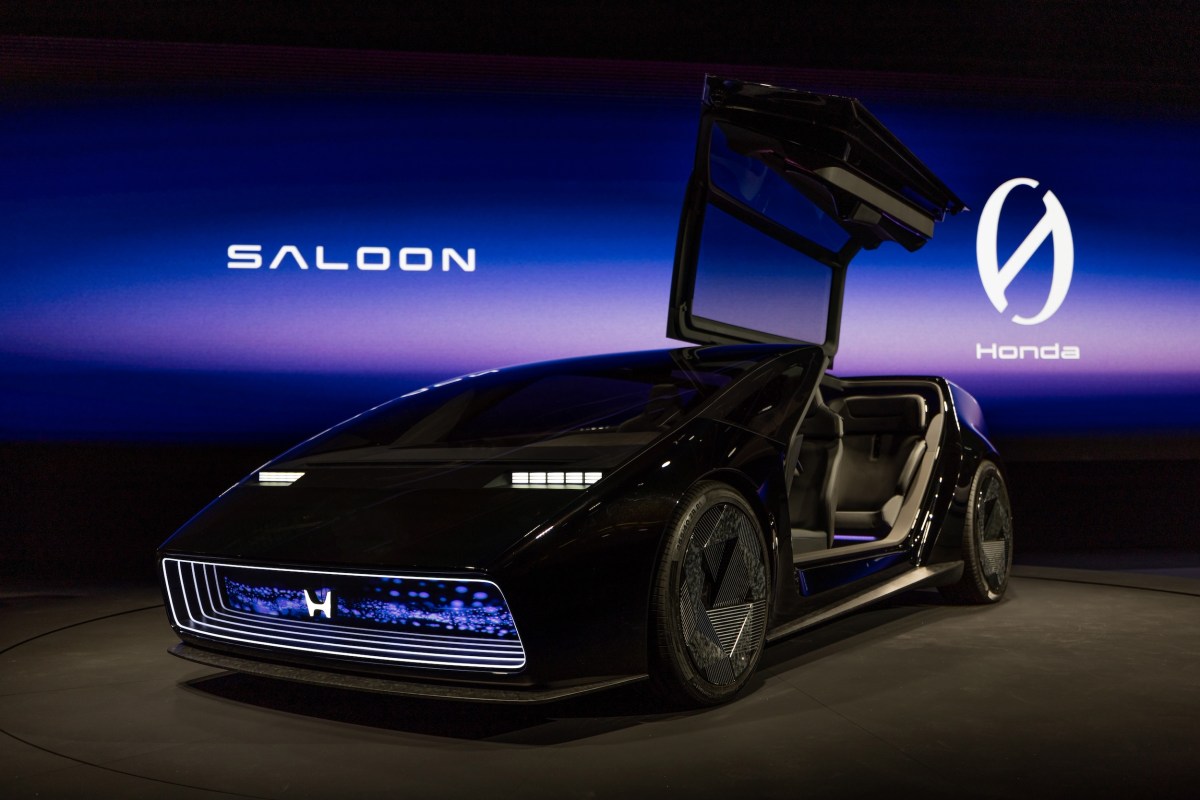CES has increasingly become defined by what automakers and other mobility-focused companies bring to Las Vegas, and CES 2024 has been no exception. Though some major CES automotive players from past years like Ford, GM and Toyota didn’t have a big presence, other companies filled the gaps with EV reveals, flying vehicles and a lot […]
© 2023 TechCrunch. All rights reserved. For personal use only.
CES has increasingly become defined by what automakers and other mobility-focused companies bring to Las Vegas, and CES 2024 has been no exception. Though some major CES automotive players from past years like Ford, GM and Toyota didn’t have a big presence, other companies filled the gaps with EV reveals, flying vehicles and a lot of talk about “software-defined vehicles” and generative AI.
As the TechCrunch team continues to cover CES from the show floor in Vegas, led by Transportation Editor Kirsten Korosec, you can catch up on all of the mobility news right here as it comes in.
Hydrogen’s making a big comeback
Attendees ride a hydrogen fuel cell train at SK Group’s SK Wonderland booth during CES 2024. Image Credits: Ethan Miller/Getty Images
The underlying technology for hydrogen-powered vehicles has been around for a while, though it’s been eclipsed by battery-powered electric vehicles. But at CES 2024, a number of companies from Nikola to Hyundai and Bosch were touting its benefits. We explore why this is the year several companies are highlighting hydrogen, with an additional deep dive into Hyundai’s plans.
What are software-defined vehicles anyway?
Image Credits: Lyudinka/Getty Images (modified by TechCrunch)
We’re glad you asked, because the phrase was all over CES 2024.
As one expert told TechCrunch, vehicles are defined as such when their “capabilities can be upgraded over time, fundamentally by software, instead of having to change physical parts.” But that’s just the tip of the iceberg, you can get the full rundown here.
Honda’s 0 series EVs, Saloon and Space-Hub concepts debut
Honda unveils concept EVs and teases new 0 series lineup. Image Credits: Kirsten Korosec
If you’re tired of “thick, heavy” EVs, Honda has an alternative vision for you. The carmaker showcased a more sleek design for its Saloon concept, while the Space-Hub takes a more family-friendly van approach. Beyond the concepts, Honda is targeting 2026 for a North American launch of the 0 series lineup. Check out our first look right here.
Polestar explains why they’re sticking with Apple CarPlay, Android Auto
Image Credits: Polestar
While other automakers are opting to make cars like the 2024 Chevy Blazer EV incompatible with both Android Auto and Apple CarPlay, Polestar is sticking with allowing drivers more flexibility with the additional services they use in their car. The company’s CEO Thomas Ingenlath broke down why in an exclusive interview with TechCrunch.
Pivotal starts selling its electric personal aircraft
From storage to flight in 30 minutes. A 16′ road trailer can hold everything needed to take the Helix to uncongested, Class G airspace areas. Image Credits: Pivotal
Backed by Google co-founder Larry Page, Pivotal will begin shipping its $190,000 Helix vehicles in June, with the company telling TechCrunch that they have already been gathering preorders during CES. Read the full rundown on the Helix here, including why it doesn’t require a Federal Aviation Administration pilot certification.
Hyundai’s eVTOL aircraft sets sights on a 2028 launch
Image Credits: Kirsten Korosec
Supernal, a Hyundai subsidiary, showed off its new S-A2 electric vertical takeoff and landing aircraft on the show floor. The craft is eventually intended to fuel a network of arial taxis through a partnership with Uber Elevate, though a rollout remains years away. The company intends to submit its proposal for FAA approval in 2025 with a launch targeted in 2028. Check out our interview with the Supernal team here.
Plus you can check out a more hands-on walkthrough of the aircraft below.
Volkswagen brings ChatGPT into its cars and SUVs
Image Credits: Volkswagen
Just when you thought you could avoid a ChatGPT mention in this rundown, here it is: Volkswagen kicked off CES by announcing the AI chat bot would be added to its IDA voice assistant. Though like its standard form factor, the voice-powered ChatGPT could still be tricked, as we learned in a hands-on demo.
Kia’s modular EV lineup is revealed
Image credits: Kirsten Korosec
Modular phones may have come and gone, but Kia hopes modular vehicles will have a bit more success. Both the electric powertrain and the vehicles’ tops are modular and connected through electromagnets. A three-row van, the Kia PV5, is targeting an approximate $35,000 price tag and a 2025 launch. Read our first impressions here.
Google Maps adds real-time battery information for EV owners
Image Credits: Google
Android Auto will now provide a clear indication of your car’s charge state, along with suggested charging stops and an estimation of how much charge will remain once you reach your destination. Check out all the details, plus some additional trip planning updates, here.

Leave a Reply